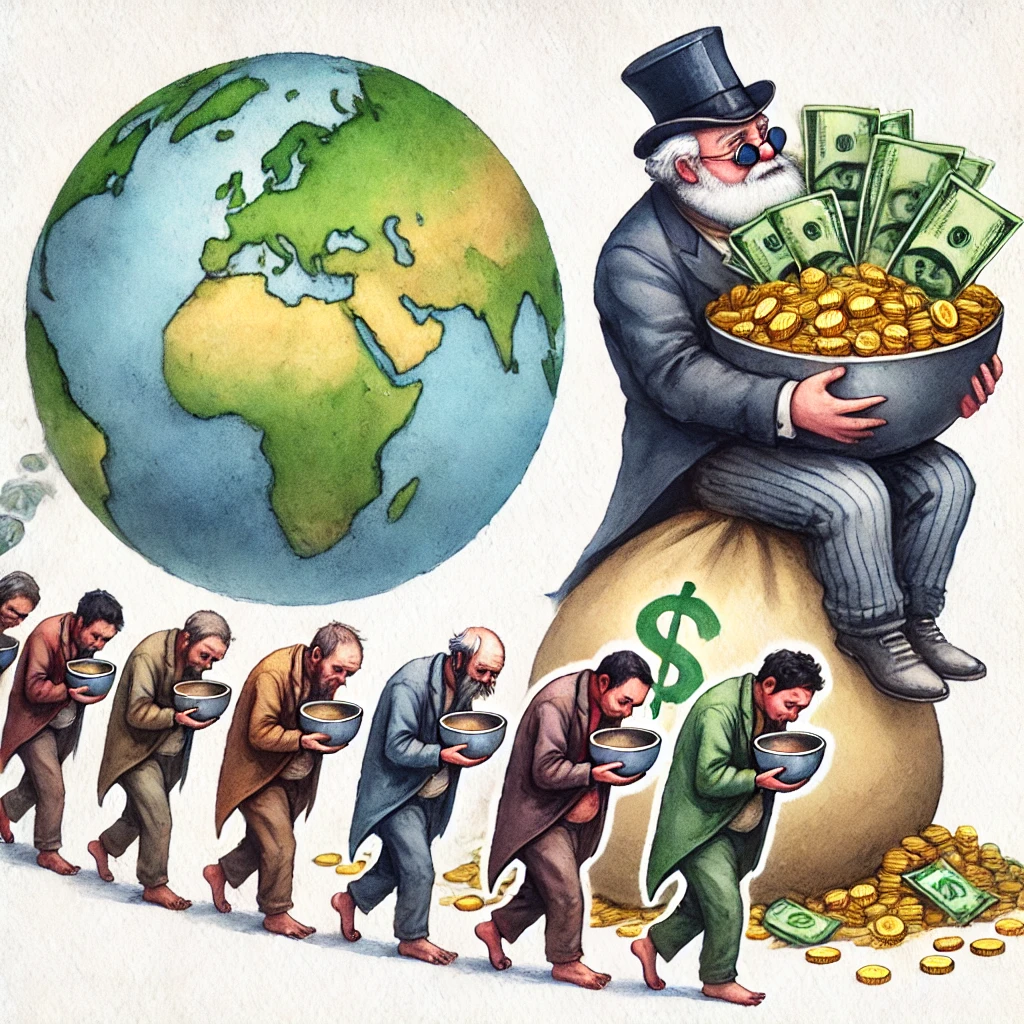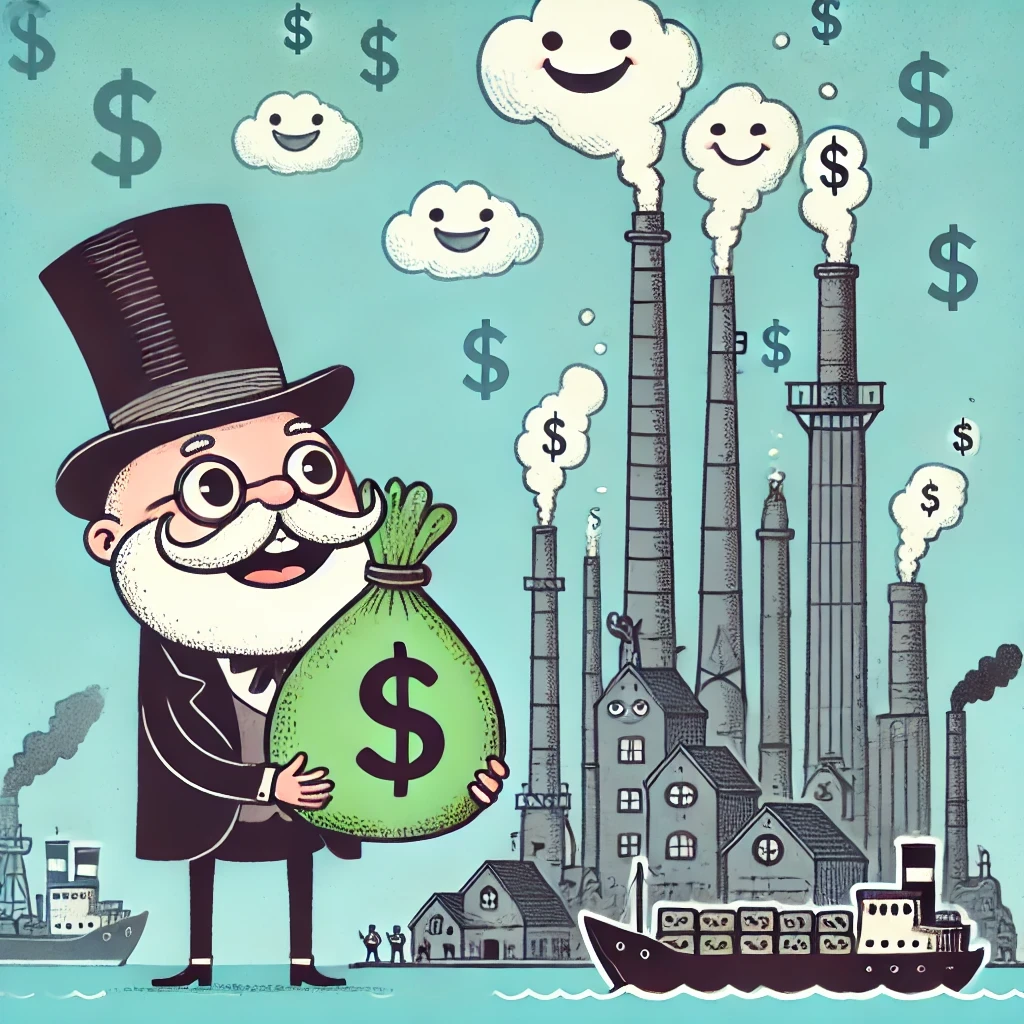Capitalism
Definition
Capitalism is an economic system characterized by private ownership of the means of production, market-driven allocation of resources, and competition. In capitalism, profit is the primary incentive for economic activity, and prices are set by supply and demand within a free market.
Parts of Speech
- Noun
Pronunciation
American English
- IPA Pronunciation: /ˈkæpɪt(ə)lɪzəm/
- Respelling: KAP-i-tuh-liz-uhm
British English
- IPA Pronunciation: /ˈkæpɪtəlɪzəm/
- Respelling: KAP-i-tuhl-iz-uhm
The pronunciation of "capitalism" is nearly identical in American and British English, with slight variations in stress and vowel sounds.
Etymology
The term "capitalism" originates from the word "capital," which comes from the Latin "caput," meaning "head." In medieval Latin, "capital" referred to the principal or main amount of wealth. The term "capitalism" itself emerged in the mid-19th century to describe a system where private capital drives production and economic decisions.
Derivatives
- Capitalist (noun, adjective)
- Capitalistic (adjective)
- Capitalization (noun)
- Decapitalization (noun)
- Recapitalization (noun)
Synonyms
- Free-market economy
- Private enterprise
- Market economy
Antonyms
- Socialism
- Communism
- Collectivism
Usage
The term "capitalism" is widely used in economics, political science, and sociology to describe an economic system based on private property, free markets, and profit motives. In capitalist economies, industries, trade, and profits are primarily managed by private individuals or corporations rather than by the state. Capitalism is contrasted with economic systems like socialism and communism, which emphasize collective or state ownership of resources. Many modern countries practice mixed economies that combine elements of capitalism with some level of government intervention.
Related Terms
- Market economy: An economic system in which production and prices are determined by unrestricted competition between privately owned businesses.
- Free market: An economic system where prices for goods and services are determined by open competition in a market.
- Entrepreneurship: The activity of setting up businesses and taking on financial risks in the hope of profit.
Detailed Definitions
Noun
- An economic system based on private ownership and free markets: Refers to a system where individuals or corporations own resources and operate enterprises for profit.
- Example: "Many countries around the world practice capitalism as their primary economic system."
- The ideology or principles behind private enterprise and profit-driven production: Describes the philosophy that supports free enterprise, competition, and private ownership.
- Example: "Supporters of capitalism argue that it encourages innovation and economic growth."
capitalism



🇨🇳 Mandarin (Simplified Chinese)
- 资本主义 (zīběn zhǔyì)
- IPA: /tsɨ˥˩pən˧˥ ʈʂu˨˩i˥˩/
- Respelling: ZEE-ben JOO-yee
🇮🇳 Hindi
- पूंजीवाद (pūñjīvād)
- IPA: /puːɳdʒiːʋaːd/
- Respelling: POON-jee-vaad
🇪🇸 Spanish
- Capitalismo
- IPA: /kapitaˈlismo/
- Respelling: kah-pee-tah-LEEZ-moh
🇫🇷 French
- Capitalisme
- IPA: /kapitalism/
- Respelling: kah-pee-tah-LEESM
🇸🇦 Modern Standard Arabic
- رأسمالية (ra’smālīya)
- IPA: /raʔs.maː.liː.ja/
- Respelling: ras-MAA-lee-ya
🇧🇩 Bengali
- পূঁজিবাদ (pūñjibād)
- IPA: /pun̪dʒibad̪/
- Respelling: POON-jee-baad
🇷🇺 Russian
- Капитализм (Kapitalizm)
- IPA: /kəpʲɪˈtalʲɪzm/
- Respelling: kah-pee-TAH-lizm
🇵🇹 Portuguese
- Capitalismo
- IPA: /kapitaˈlizmu/
- Respelling: kah-pee-tah-LEEZ-moo
🇮🇩 Indonesian
- Kapitalisme
- IPA: /kapitalisme/
- Respelling: kah-pee-tah-LEES-meh
🇩🇪 German
- Kapitalismus
- IPA: /kapɪˈtaːlɪsmʊs/
- Respelling: kah-pee-TAAL-iss-moos
🇯🇵 Japanese
- 資本主義 (shihon shugi)
- IPA: /ɕihoɴ ʃuɡi/
- Respelling: SHEE-hon shoo-GEE
🇻🇳 Vietnamese
- Chủ nghĩa tư bản
- IPA: /t͡ɕu˧ˀ˨ʔ ŋi˧ˀ˨ʔ tu˧˥ ban˧˥/
- Respelling: CHOO nghya TOO ban
🇰🇷 Korean
- 자본주의 (jabyeonjuui)
- IPA: /t͡ɕa.byʌn.d͡ʑu.i/
- Respelling: JAH-byun-joo-ee
🇹🇷 Turkish
- Kapitalizm
- IPA: /kapitɑːˈlizm/
- Respelling: kah-pee-TAH-lizm
🇵🇰 Urdu
- سرمایہ داری (sarmāyā dārī)
- IPA: /sərmaː.jaː daː.riː/
- Respelling: sar-MAA-ya DAH-ree





